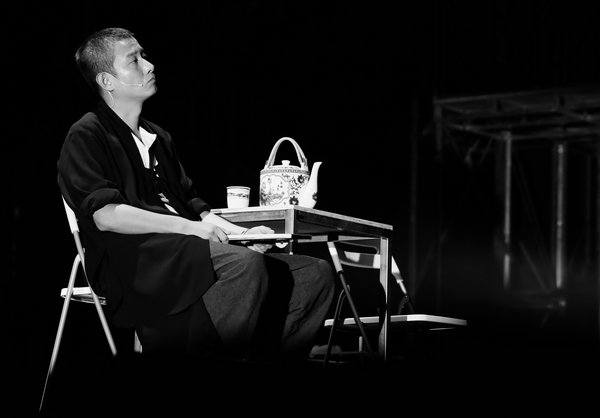

Classic theater productions' adaptations are inevitably compared with the originals-for better or for worse. This perhaps explains the mixed reviews of contemporary director Meng Jinghui's take on Teahouse, based on the original by novelist and playwright Lao She (1899-1966)-a household name in China.
Some say it's difficult to understand since the script departs so much from the original.
Meng considers it "a spiritual visit to Lao She".
Over 1,000 people attended the premiere at the Grand Theater in Zhejiang province's Wuzhen town on Oct 18.
Lao She wrote Teahouse in 1956. Beijing People's Art Theater debuted the work in 1958, and the play is still one of its most popular.
It depicts changes experienced by all walks of life during the final years of the Qing Dynasty (1644-1911), and the periods that follow, including the War of Resistance Against Japanese Aggression (1931-45) and New China's founding in 1949.
Meng swaps the Yutai Teahouse's traditional architecture for a steel wheel that's 19 meters long, 16 meters wide and 11 meters high. It was created by set designer Zhang Wu, who has collaborated with Meng on over 30 plays, and is meant to symbolize each character's fate over time.
Film actor Wen Zhang plays the teahouse's boss, Wang Lifa.
Meng's three-hour play opens with Wang and 17 other performers clad in white tops and black pants giving monologues in turn as they sit on the wheel.
Musician Shao Yanpeng and Beijing-based rock band Nova Heart composed the music, featuring elements of rock, electronica and hiphop for Meng's Teahouse.